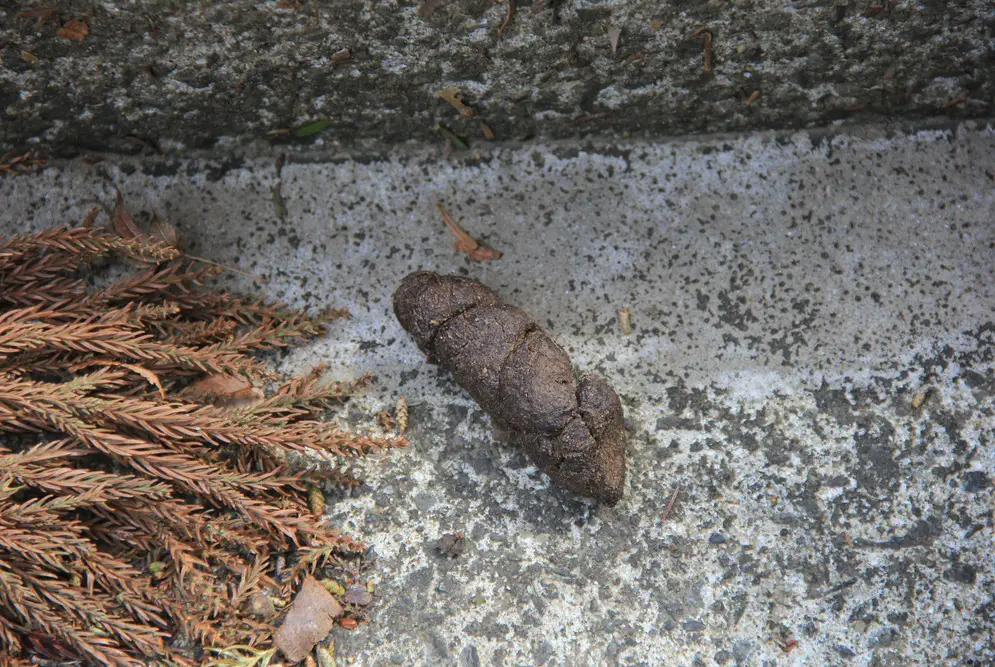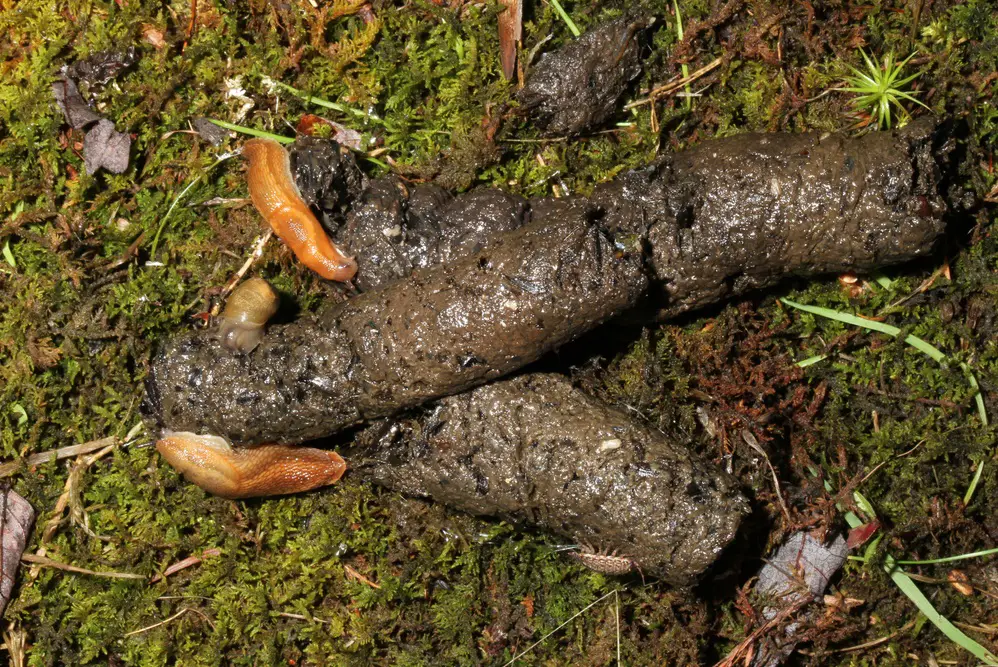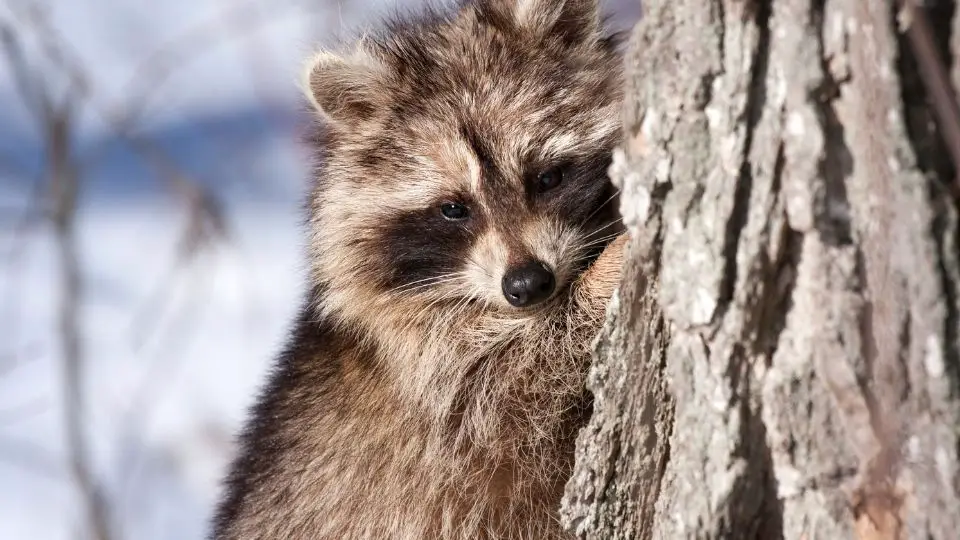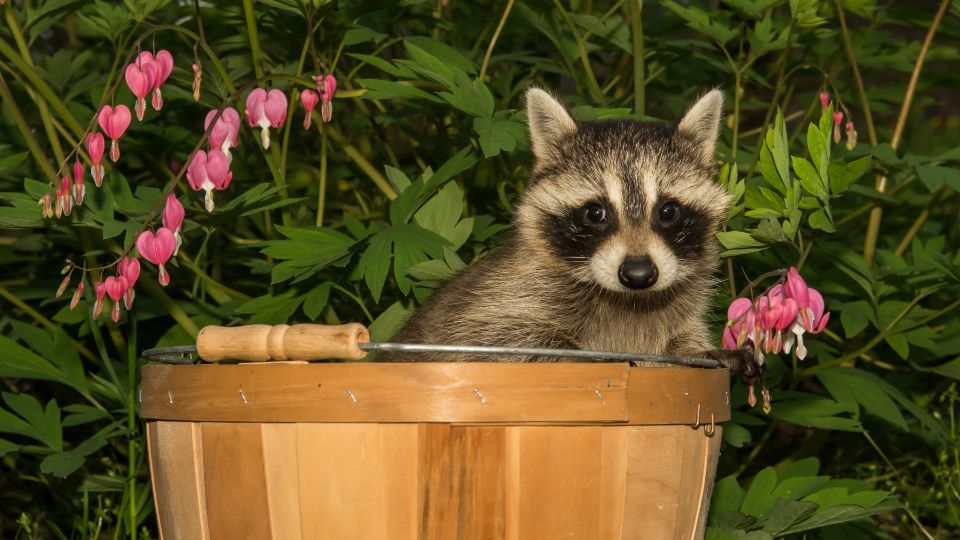Raccoon droppings may look like that of a small dog. Their scat is usually tabular, two to three inches long, and primarily black, with broken or rounded ends.
Raccoons are some of the most destructive urban pests that cause lots of trouble and even threaten humans. Raccoons will appear on your property to scavenge and rummage through trash cans, garbage cans, and even chase off your pets.
In addition to marshes, meadows, forests, and prairies, these cat-sized animals can be found in cities and suburbs. They’re primarily notable for their bandit-like marks on the faces, leaving a nasty mess on your yard or property.
The best way to distinguish raccoons from other pests is their feces or droppings, as it’s difficult to identify them from their paw prints. This article focuses on virtually everything you need to know about raccoon feces.
Table of Contents
What does raccoon poop look like?
Raccoon feces’ coloration varies depending on what the raccoon has eaten. Even though a dog and raccoon poop may look alike, raccoon droppings can be identified by the food fragments in the stool.
Raccoons are also omnivorous, meaning they feed on just about anything. This can make it hard to identify raccoon scat.
How old the poop is will determine what it will look like. If the poop is fresh, the scat can be wet and dry out over time as the sun burns it.

How do you identify raccoon droppings?
You can ascertain a raccoon scat by carefully inspecting it with a stick and confirming the presence of undigested seeds or berries. Raccoons feed on nuts, grains, vegetables, herbs, and fruits, so these unprocessed foods will mostly be present in their droppings.
Raccoon feces can be found in various locals. They do their business in high places like roofs, boulders, stumps, woodpiles, or logs. These spots where raccoons leave their droppings are known as raccoon latrines.
Although, diet and time determine how their scat will look, you can identify raccoon feces through the following strategies:
- Identify the location: Raccoons usually leave their feces in one location, especially near the base of a tree.
- Identify more clues in the area: Check for raccoon urine, fur tracks, or food remains on the spot.
- Look for tabular droppings: Raccoon poop is tube-shaped and contains what they’ve eaten.
- Look at the consistency: Check the diet contained in the feces.
- Determine the color: Raccoon droppings range from dark brown to greenish
- Estimate the age of the droppings: They’re wet and sticky when still fresh and dried out and clumpy when older.
Is raccoon poop toxic to humans?
Yes, raccoon poop is toxic to humans as it could contain small roundworm eggs that can infect humans, causing severe health issues if accidentally inhaled or ingested. Raccoon scat also contains viruses and diseases such as rabies virus and bacteria that cause leptospirosis.
Although rare, these infections can cause irreversible heart, brain, and eye damage and death. Intestinal roundworms can severely affect the central nervous system.
So, if you want to clean up raccoon poop and prevent roundworm infection:
- wear an N-95 grade respirator
- wear rubber boots
- use disposable gloves
- use a shovel
- use a sealable plastic bag
After cleaning up, disinfect your hands with soapy water and other disinfectants.

Do raccoons poop in the same spot?
Unlike other pests that intrude on your yard or garden, raccoons don’t just poop wherever they please. This sets them apart from most animals that do their business anywhere they please. The places where raccoons designate to leave their scat are called raccoon latrines.
Raccoons are more organized and choose a site to poop away from the den. They will then use the same spot over and over to relieve themselves, so you can expect to find a lot of urine and feces on the same site.
Moreover, these latrines are community latrines meaning raccoons living in the same area can use the same pooping spot. The most common locations include tree bases, house roofs, tree stumps, woodpiles, attic floors, large rocks, logs, and other elevated areas.
Do raccoons mark territory with poop?
Raccoons create raccoon latrines as one way to mark their territory.
However, they have paired anal glands responsible for secreting the substance they use to mark their territory. They rub their behinds on anything that they would wish to claim.
In addition, raccoons are very aggressive and territorial animals that do not respect other animals’ territories. Therefore, they will defecate and urinate on other animals’ latrines.
Do raccoons poop on lawns?
Raccoons defecate away from their dens, which could be your lawn. They will use this site repeatedly, and you might find a lot of urine and feces on your property.
Moreover, raccoon scat smells very bad compared to other animal droppings, and they have a more pungent and repulsive stench because of the undigested food. The urine mixes with the feces giving them a strong ammonia-like stench that will attract larvae, flies, and other parasites.

What to do if you identify raccoon poop?
If you identify raccoon poop, you should ensure to clean it up immediately to avoid the many life-threatening risks that might result. So, keep raccoons away by sealing their entry points and preventing them from accessing your basements, porches, attics, and the like.
Also, use protective gear when collecting the feces to avoid direct contact with the baylisascaris procyonis bacteria that causes leptospirosis and other health risks. If all fails, you can always contact a raccoon removal company specializing in these wild animals.

